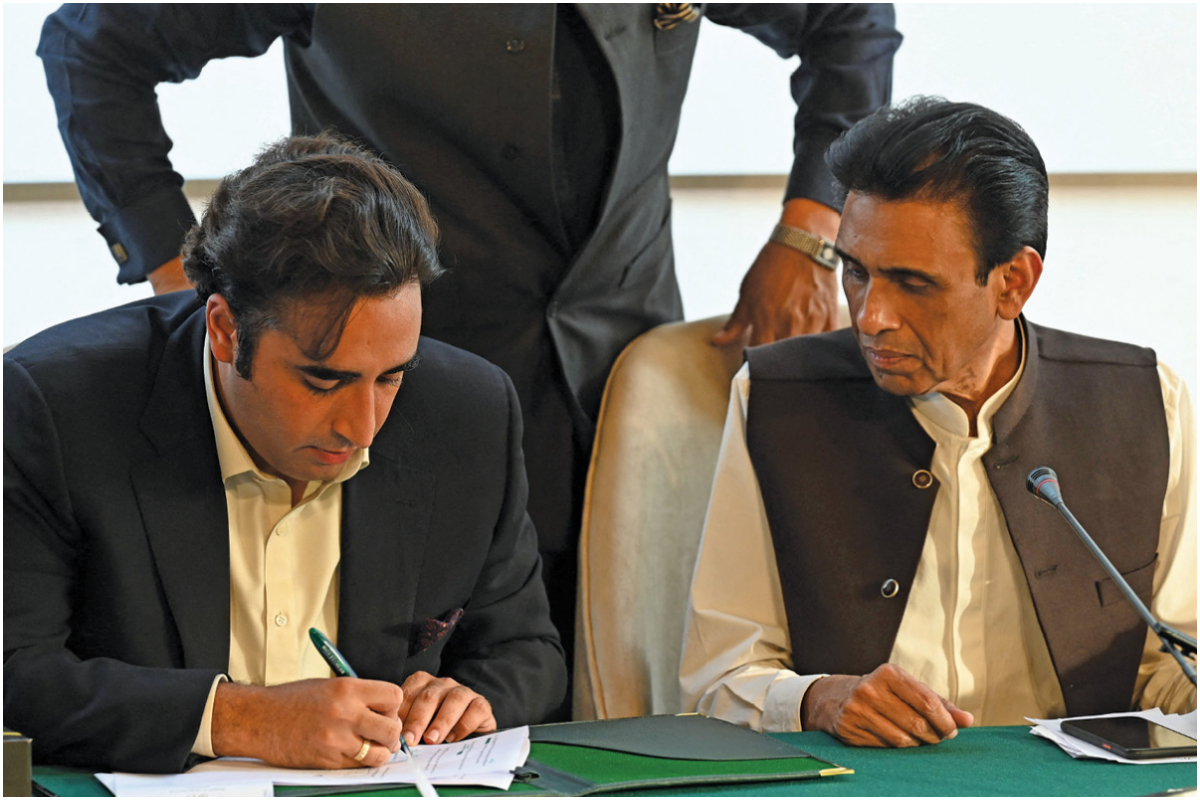
Sindh LG Polls Dilemma
The PPP, the MQM-P expected to present a joint stance before the ECP in response to JI’s request
KARACHI: The ruling party in Sindh, the Pakistan People’s Party (PPP), and its ally, the Muttahida Qaumi Movement Pakistan (MQM-P), are expected to present a joint stance before the Election Commission of Pakistan (ECP) in the reference filed by the Jamaat-e-Islami (JI), requesting that local body elections be held without delay.
The hearing was scheduled for November 9, but the government later announced a public holiday on Iqbal Day, so the hearing was rescheduled for November 15 at ECP’s provincial headquarters in Karachi.
JI Ameer Karachi, Hafiz Naeem ur Rehman, was concerned that local body elections would not be held in the near future because the PPP and MQM-P were avoiding them because they were afraid of their impending defeat.
He stated, “The administrator should be independent of any political party. The illegally appointed administrator claimed to have allocated Rs 15 billion for the city’s patchwork of roads, but it seems that only a fraction of that amount will be spent. The corrupt regime appears to be plundering as much as it can now that it realises its days are numbered.”
MQM-P Convener Khalid Maqbool Siddiqui recently told the media at a ceremony, “We support holding local government elections as soon as possible, but they should be conditional on delimitation based on the new census results. The elections would be meaningless if the delimitation process was not carried out.”
“The ministry has imported and provided 120 thousand tablets to the survey department so that the census could be completed on time, and now it would take almost four months to be completed,” said Syed Amin Ul Haque, Federal Minister for Information Technology and senior leader of the MQM-P.
Meanwhile, ahead of the hearing of JI’s reference in the ECP, the leaders of the PPP and the MQM-P met to devise a strategy, as both parties claim to have a close working relationship in the province.
Sindh Chief Minister Murad Ali Shah led the PPP delegation, while the MQM-P delegation was led by Khalid Maqbool Siddiqui. Sindh Governor Kamran Tessori also represented the MQM-P at the meeting.
“We have agreed in principle that the new administrator in Karachi will be appointed very soon on the recommendations of the MQM-P,” said MQM-P Deputy Convener and Spokesperson Khawaja Izharul Hassan.
Later, Saeed Ghani, a provincial minister, endorsed Izharul Hassan’s statement, saying the two sides had resolved all pending issues.
Referring to the Charter of Rights, an agreement signed when the MQM-P was about to part ways with the PTI, Ghani stated that the PPP would keep its promises because both parties were moving forward on a positive note.
He said that multiple sessions of talks had taken place, and the MQM-P had always pressed their demands, which were mentioned in the agreement. “They have not expressed an interest in joining the Sindh government as the PPP’s coalition partner,” he claimed.
According to sources, however, the appointment of a new administrator in Karachi, as well as the fulfilment of many demands, may pave the way for the MQM-P to join the Sindh government as a coalition partner of the PPP and even accept the portfolios offered by its coalition partner.
The meeting also went over the changes being made to the provincial local government law to give the mayor more powers in accordance with Article 140a of the constitution. Both parties stated that negotiations were in progress and that they had reached agreements on several points.
It is worth noting that the Sindh cabinet, in its meeting, recently approved a summary to amend the Sindh Local Government Act (SLGA 2013) through an ordinance to give the next mayor of Karachi more powers. The next mayor, according to the summary, would be the chairman of major civic bodies such as the Water and Sewerage Board (KWSB), the Karachi Development Authority (KDA), and the Solid Waste Management Board (SWMB). It was one of the MQM-P’s most pressing demands, which the government met.
Sources further revealed that both parties also discussed the issue of delimitation. They stated that a formula was agreed upon for delimitation in urban areas where all union councils would be divided equally on the basis of population. For example, a union council in Malir has a population of 10,000 people, while another UC in Nazimabad has a population of 55,000; thus, this disparity would be eliminated.
Furthermore, all union councils in urban areas would have roughly equal populations, so no UC would be treated unfairly. The next local government elections would be held under the new delimitation, and the ECP would also be asked by both parties to hold local government elections under the new delimitation.
Catch all the National Nerve News, Breaking News Event and Latest News Updates on The BOL News
Download The BOL News App to get the Daily News Update & Live News.












 Read the complete story text.
Read the complete story text. Listen to audio of the story.
Listen to audio of the story.